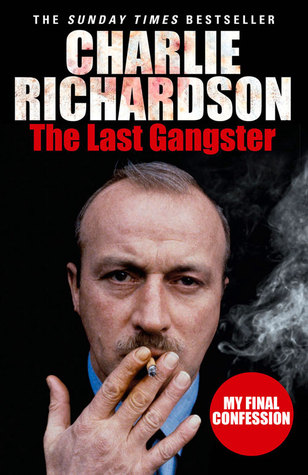Charlie Richardson was an important figure in the London Underworld during the 1960s. The Krays often overshadow The Richardsons in terms of their notoriety as London gangsters but, as is clear from the revelations in this book, The Richardson family were certainly equally as important in the capital’s underworld. Whereas the Kray twins had fame and used to use a lot of violence, the Richardsons tended to be more business-orientated. The two families met each other and were interlinked, sometimes having nasty fallouts during their periods as rivals. Charlie Richardson begins his book back in his youth, remembering the harsh days of World War 2 and what growing up during the blitz and subsequent years of suffering under rationing etc meant to his character formation. He had an early acumen for business and started off as a scrap metal dealer, something that he built his whole operations around. His reputation as a South London hard man led him to brush shoulders with the rich and famous and very powerful. What struck me was not so much the run of the mill criminal tales but the way he was used by high society politicians and espionage networks. Ultimately, his trumped up 25 year jail sentence in 1966 due to allegedly torturing some of his debtors using an electroshocking ‘black box’ – a crime he still refutes – was probably so severe due to his involvement in a South African spy plot to bug Prime Minister Harold Wilson’s Downing Street telephones. The chapter when he dodged out of his military draft ending up in his first big prison spell was interesting. Charlie Richardson was certainly a ladies man and could charm the women, moving through several before finally settling with his final partner, Reggie, on his release from jail. The businessman shows in his overseas mining ventures and it was clear that he can not be regarded as just a tough typical cockney criminal. He was a thinking man and his university studies whilst serving his jail sentence showed how he was certainly of a high intellectual ability. What strikes the reader about Charlie Richardson, in his honest and straightforward autobiographical account, is that, aside from his illicit activities and tough reputation, he was above all a family man with values. It is certain, in particular from the character testimonies bequeathed after his death, that Richardson was held in very high esteem with the respect of ordinary decent folk as well as having clearly earned his stripes as perhaps the ‘Last Gangster’ of a forgotten age. Still to this day Richardson’s name in London is held in awe and through reading this book, it is clear to me, why this should be.

You must be logged in to post a comment.